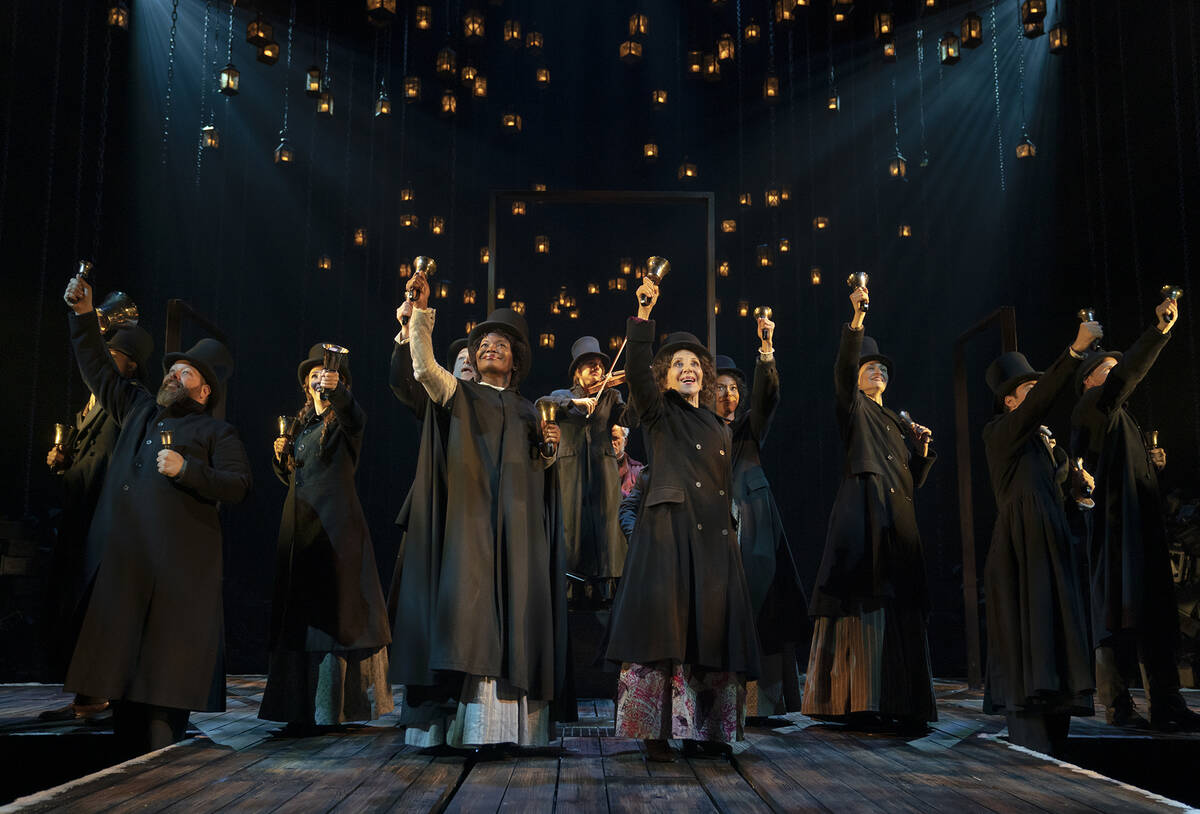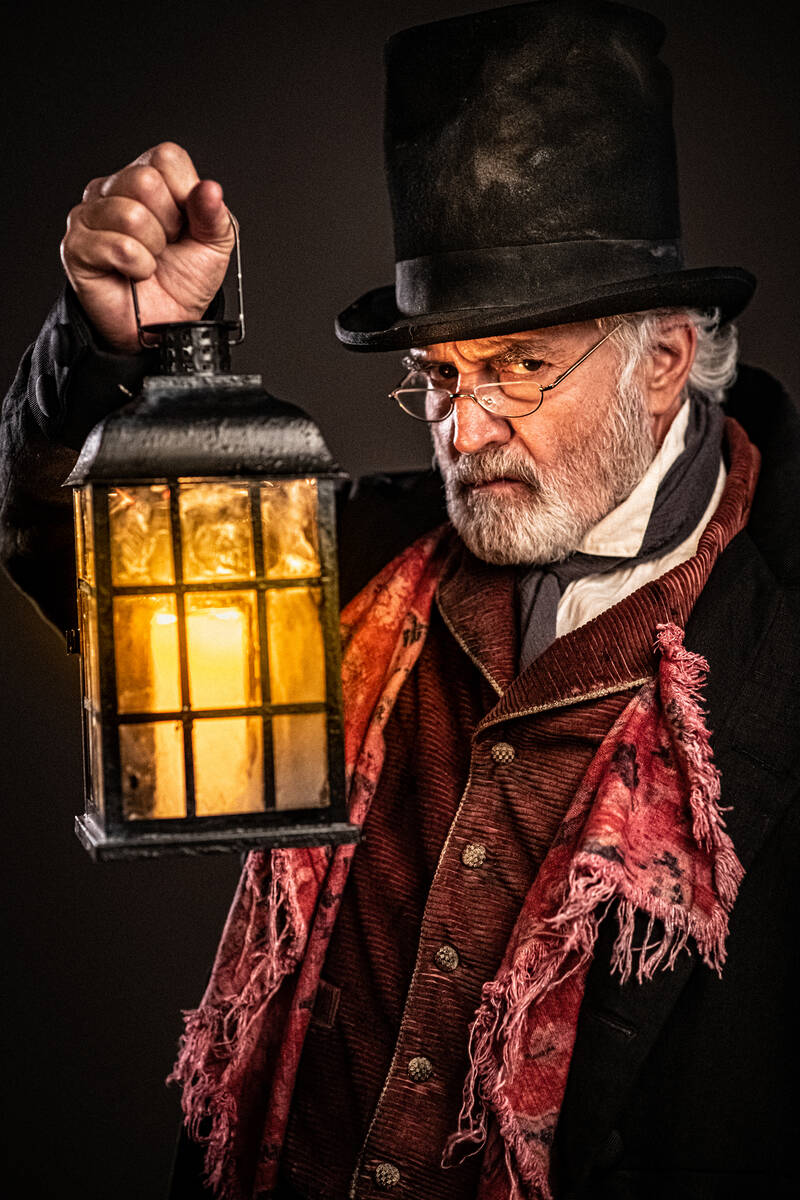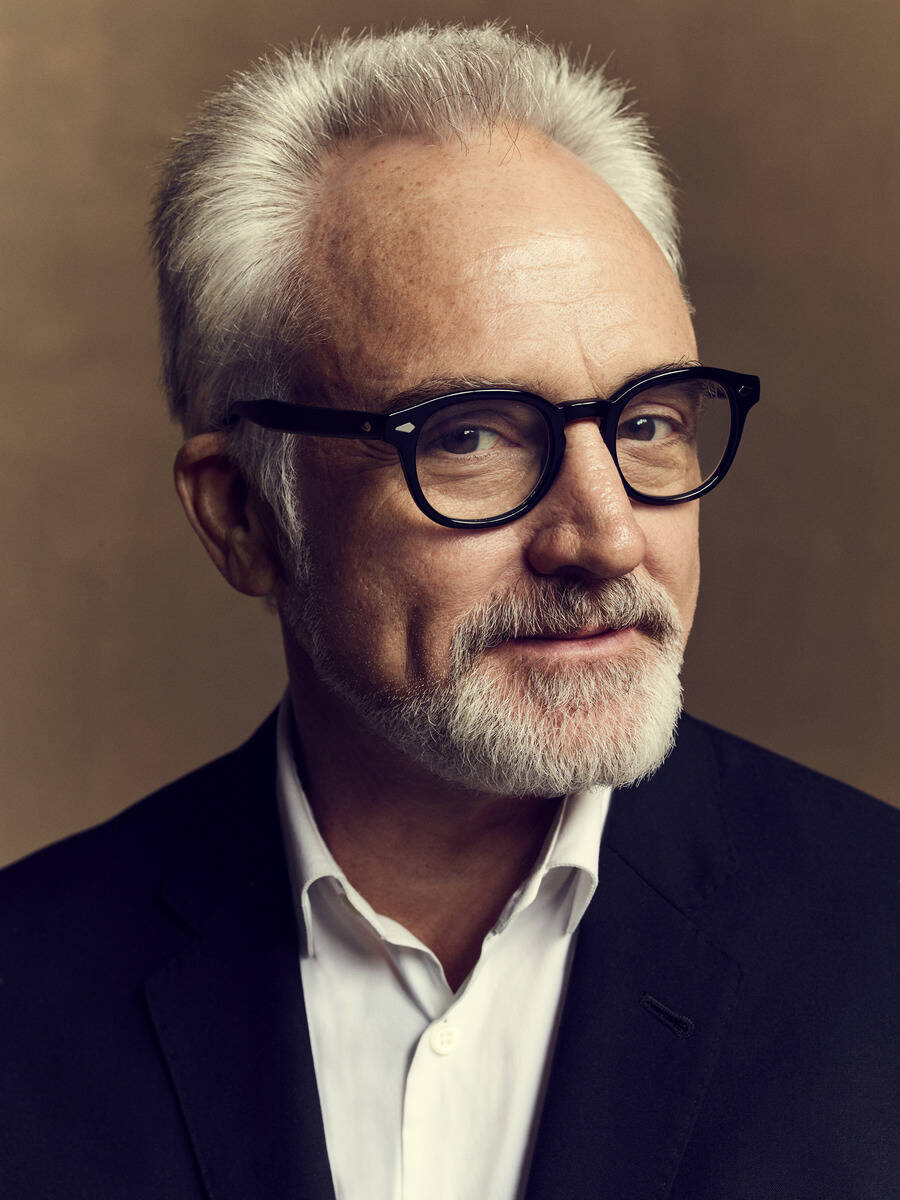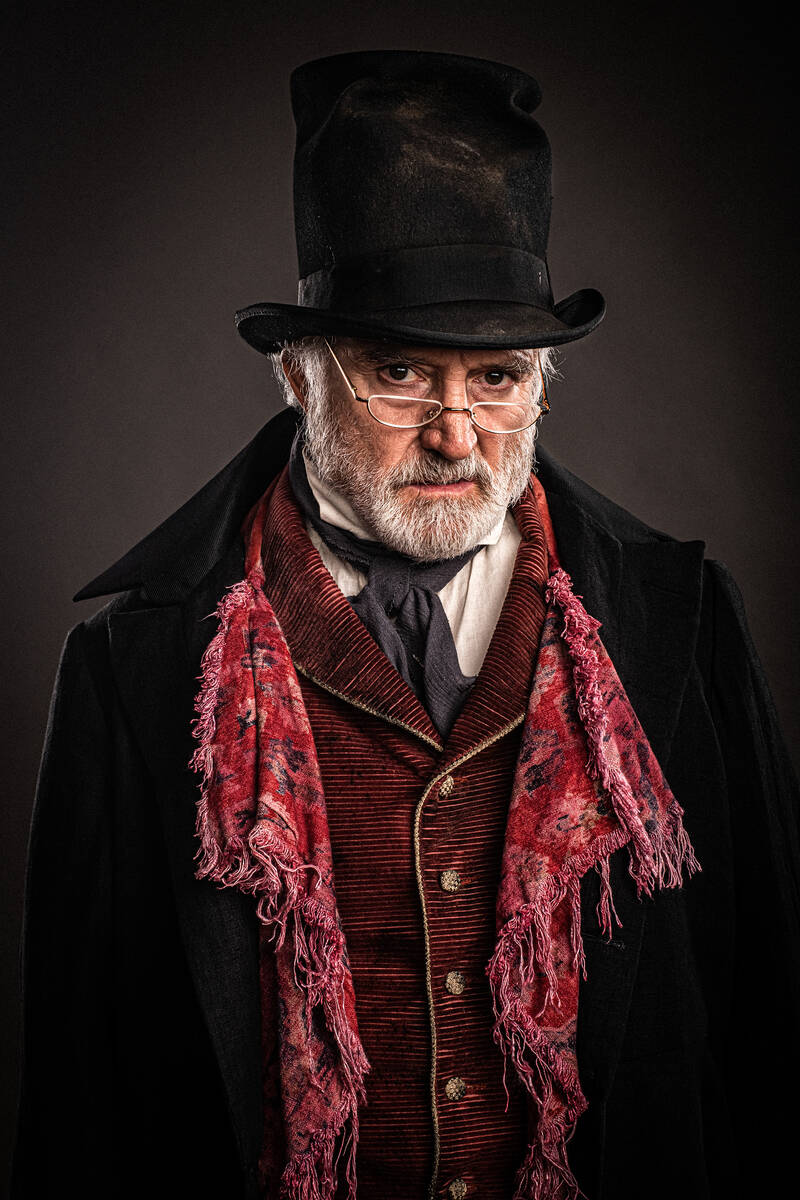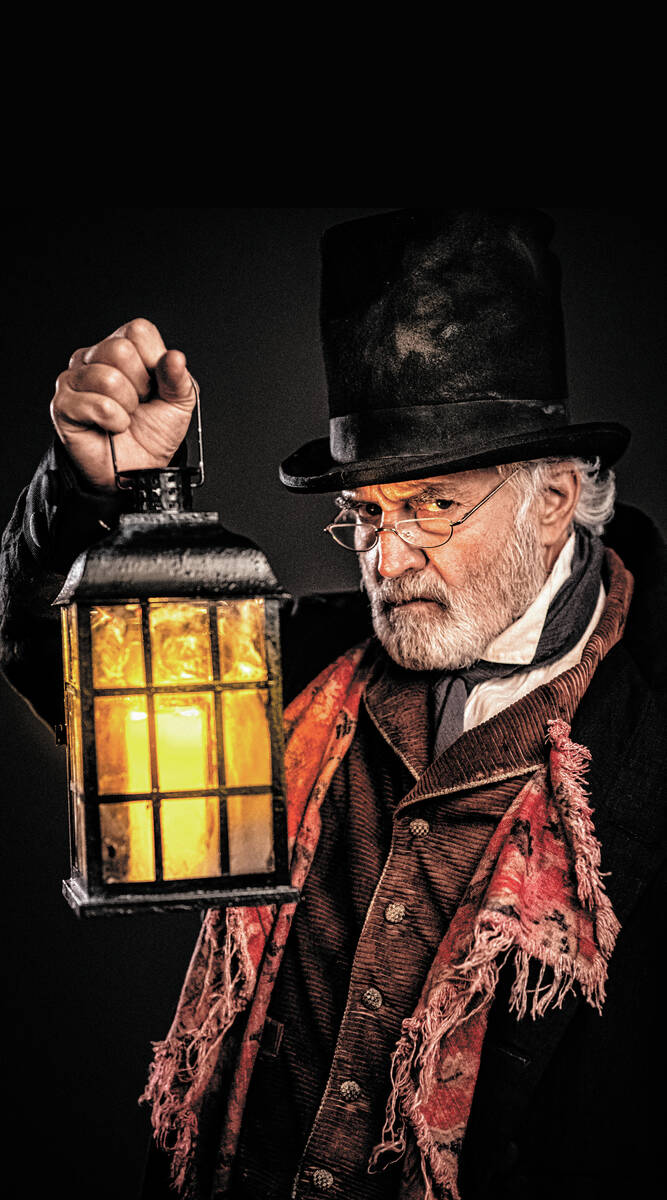‘West Wing’ actor brings life to Scrooge in Smith Center production
It’s as if Bradley Whitford had been preparing to play Ebenezer Scrooge since he was a kid.
“I was raised Quaker, but my mother was in love with George C. Scott,” says Whitford, who remembers gathering with the family each year to listen to a recorded adaptation of “A Christmas Carol” with Scott as literature’s most famous misanthrope.
Whitford calls it “the central ritual” of his childhood, even if he hasn’t, to this day, seen the film adaptation in which Scott stars.
“I never wanted to see it and have never seen a movie version because I realized I wanted to protect that memory of it,” the 62-year-old actor says. Also to this day, “I don’t have a favorite (Scrooge). George C. Scott is the only Scrooge.”
Given all that, it somehow seems fitting that Whitford now has an excellent shot of becoming a present-day kid’s perfect Scrooge when he takes on the role of Charles Dickens’ literary curmudgeon in “A Christmas Carol,” which runs Nov. 23-28 at The Smith Center for the Performing Arts.
The production, adapted by Tony winner Jack Thorne and originally directed and conceived by Tony winner Matthew Warchus, won five Tony awards. The cast includes, in addition to Whitford, Tony and Emmy nominee Kate Burton and Grammy and SAG nominee Alex Newell.
At first blush, Whitford — a three-time Emmy award winner whose credits encompass both drama and comedy, including “The West Wing,” “Transparent” and “The Handmaid’s Tale” — wouldn’t seem to be a terribly likely Scrooge. During a phone interview, he’s funny, self-effacing and thoughtful, and as excited as a kid on Christmas morning about his early Christmas gift. He recalls that, two years ago in London, Warchus — who had directed Whitford in “Boeing-Boeing” on Broadway in 2008 — “said, ‘Do you want to see my production of ‘A Christmas Carol’?”
“Honestly, inside I died a little,” says Whitford, who’s done enough regional theater to know that “A Christmas Carol” often serves mostly as a Yuletide attendance-booster “where the theater makes their nut.”
Then he saw the production. “I was a puddle. I was blown away,” Whitford says. “I think it was one of the most beautiful things I’d ever seen.”
Later, when emails came from agents “saying, ‘I’m sure this is a pass, but they want you to play Scrooge,’ ” he jumped at the opportunity.
“I’ve never been happier in my life,” Whitford says. “It has been so much fun.”
“I think it’s such an amazing time to be doing this, when people can be safely together after so long being out of theaters. And the reason this story lives on is because it’s timeless. It’s a horror movie. It’s a redemption movie. Love is at the center of it. The capacity to change is at the center of it.”
He admits that tackling such a well-known character — and facing audiences’ perception of what the character should be — is intimidating. But, he says with a laugh, “intimidation is a perennial state for me, and it sounds like I’m being self-deprecating and joking, but I’m not. Yeah, absolutely, with something like this. People hold this story dear.
“You do need to find your way into it. It’s a very odd kind of wonderful hallucinogenic experience playing this part. I said to my wife, it feels like emotional CrossFit or something.
“My parents, who lived long, wonderful lives, I’ve lost them,” he says. “I have a sense of how fleeting this is. I’ve seen people struggle. I’ve seen horrible people find a better way. It’s a wonderful time in life to be able to do this. But things that come up while you’re acting this part, it makes you realize why this story continues to be told, especially in a time Dickens was so obsessed with things that need to obsess us now.
“So it is, I think, one of the greatest — this sounds really pretentious …” He pauses for a second and laughs.
“I’m looking at my phone. They sent me a list of talking points,” he explains — that the show would be a fine way to celebrate the holidays, that it’s a great family outing and the like.
“It is all that,” Whitford says. “But the reason the story continues to be told is because I think it’s one of the most durable weapons in the ongoing war against the toxic myth of separateness, if that makes any sense. It’s about how we’re all in this together.”
The story asks, “How can we live in a world where some people don’t have enough so that some people can have too much? Are we comfortable with that? Should we get used to it or should we ignore the suffering? And it’s such an interesting way (Dickens) puts it: If we all are fellow passengers to the grave … how does that perception change your behavior?”
This adaptation even may present audiences with a different, more fully realized Scrooge than the one-dimensional character he often can become.
“It’s not a rickety old man getting saved at the end,” Whitford says. “Redemption isn’t coming easy to this guy. He fights it. Scrooge is a horrific human being at the beginning of the play. There is a transformation this production tries to take seriously. It’s not a facile epiphany.”
Dickens’ dialogue can be a bit florid, just like the dialogue of another notable dramatist. So: Whose dialogue, Dickens’ or Shakespeare’s, is tougher for an actor to deliver?
“Sorkin,” Whitford answers without missing a beat, in reference to Aaron Sorkin, the creator of “The West Wing,” the drama for which Whitford was nominated for three Emmy awards and won one.
Whitford is amazed that the story that held him riveted as a kid is one he, and probably millions of others, love hearing over and over again.
“I would guess the biggest surprise to me is, I can’t imagine a more fascinating part to do,” he says. “I guess I had come up in theater, where every regional theater chucks it up at the end of the year, (and) I think I became kind of cynical about it. But it’s one of the greatest parts I could ever imagine playing. You could play this part for years and still want to swim around in it.”
“I feel there are many times in my career when I felt unbelievably lucky to play a part in a production or a show, and this absolutely is one of those,” Whitford says. “My wife keeps saying, ‘I’ve never seen you so happy,’ which is kind of sad. I’d like to think there’s been a few other times.”
Contact John Przybys at jprzybys@reviewjournal.com. Follow @JJPrzybys on Twitter.
Preview
"A Christmas Carol"
The Smith Center for the Performing Arts
Nov. 23-28
Ticketsd $30-$148 (702-749-2000)



